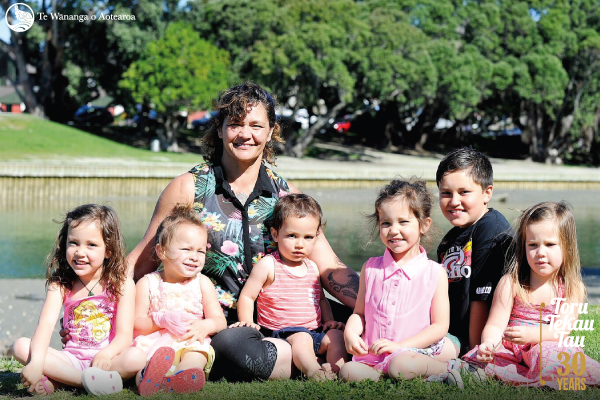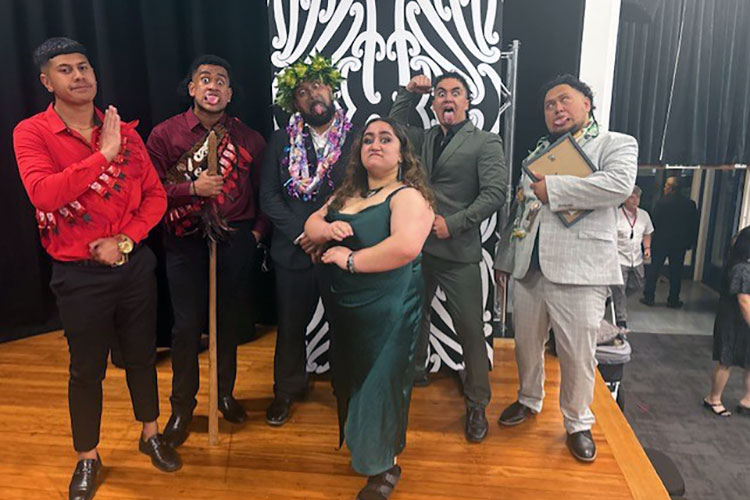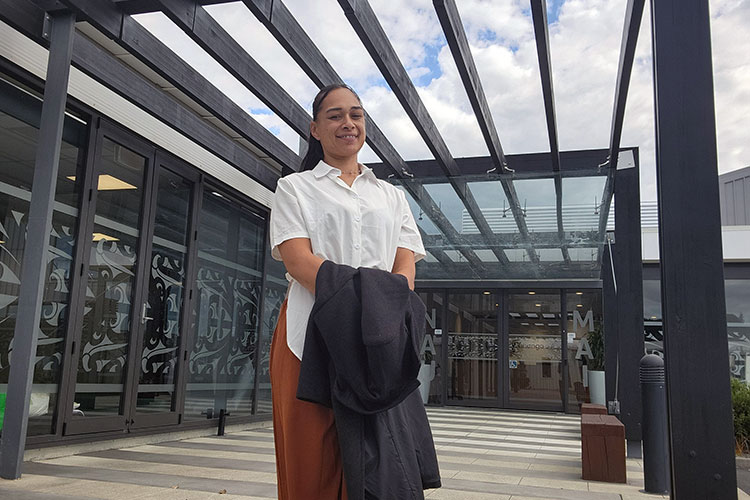Tricia Walsh was 38 and languishing in another prison cell on a six-and-a-half year stretch.
She’d been busted for dealing cannabis, possession of LSD and getting caught with utensils for using methamphetamine, the drug that had made her life “a complete mess”.
But the latest lag was a relief from her daily life; which to that very point had been a recurring nightmare of physical and sexual abuse, drugs, alcohol and gang life spanning more than 30 years.
Tricia grew up normalising the hard drinking her parents would indulge in and the endless beatings her dad would dish out to her mum at their Gisborne home.
From the time she wore nappies she would also endure unspeakable acts behind a closed bedroom door.
Many other men, who would visit the family home, through her childhood, would repeat the acts inflicted upon her by her father.
At 13, Tricia scrambled for her life with her siblings when their father burned their home down with his children inside.
Her mother, who then left her father and descended in to full-blown alcoholism, afforded them no love or care and instead increased the frightening levels of violence they had become accustomed to.
“She would put my head through the window or stomp on me until she had no energy left. It is really sad to think about but you were taught that if you cried they would give you something to cry about.”
“You had low self-esteem and fear governed your life and because your mother did that to you and there was a lot of alcohol, you become an easy target for every person that came into your life.”
A promising student with a high IQ who was also passionate about sports, Tricia says she dreaded hearing the school bell at the end of the day.
She would often sleep under her bed or in the wardrobe clinging to the hope that her dog would protect her from the male predators that frequented her room while their friends drank in the lounge.
By the time Tricia ditched school and started running with the Mongrel Mob at 13 she estimates she had been abused by at least 50 people.
But if she was expecting a safe haven from the abuse and beatings she suffered at home with her new mob whānau she was mistaken.
Tricia was comfortable with her new life and the meddling in petty crime even thinking that it was better “to be beaten up by gang members than by my mother”.
“The beatings from my mother were more soul-destroying.”
At 15 she was pregnant with her first child and within four years she would have two more children.
The same year when most of her friends were sitting school certificate she was incarcerated - the first of six lags she would endure through her life - after a botched burglary.
More than 20 years later, some of it on the run and hiding in Womens’ Refuge safe houses from the gang, more convictions and selling drugs to put food on the table, Tricia reached a crossroad in her life.
“I didn’t know how but I needed to do it for my mokopuna,” she said.
“I had one mokopuna then and had already done a lot of lags. This was my sixth time in jail but this time there was a deep desire to become something other than what I had become that got me to prison.”
Tricia’s life these days is a polar opposite of the one she was helplessly trapped in.
She’s studying Te Tohu Paetahi Nga Poutoko Whakarara Oranga, a Bachelor of Social Work at Whirikoka.
She’s also heavily involved in community initiatives in anti-child abuse and anti-bullying and last week stepped in to the ring in a local fight for life.
Tricia’s breakthrough came when she decided to educate herself.
The changes have positively affected two of her adult children, both of whom left school prematurely.
Her son is in his second year of whakairo classes and her daughter is undertaking a Bachelor of Nursing degree.
Highly articulate and intelligent, Tricia says a master’s degree beckons and with the right support, a doctorate when she completes her current study.
“The thing is it took me four years to actually step through the door of Te Wānanga o Aotearoa because I thought my past would stop me from being accepted even though when I rang I was invited to come down and sign up. I just didn’t have the strength to do it.”
“But education has changed the way we think about each other in my whānau, the dynamics within our home and within our whānau have completely changed.”
She sees herself as being an important part of community change, like a nanny to the vulnerable who are afforded understanding, care and opportunities for a better life.
Having lived the life of those she champions to protect she knows what the outcomes are for those in home environments where alcohol, drugs and abuse are rife.
She told The Gisborne Herald that becoming a social worker could be problematic with her criminal convictions, however she hopes to one day utilise her academic study to change some of the policies around crime and children.
“I think we need more opportunities for adult learners. Policy at the moment makes it harder for the vulnerable with bad histories to be employed or educated, like they were meant to be all along.”
“We also need to be more aware as a community and support whānau through challenges, so our kids grow up to be healthy and happy. Do not turn a blind eye, because if you are not cared for in your own home then you will not care for your neighbour — and that affects absolutely everyone. There were so many opportunities in my childhood where someone could have stepped in and said, ‘Are you OK?’ But no one ever asked.”
For more information about the Te Wānanga o Aotearoa Bachelor of Social Work and how to enrol click here.



































